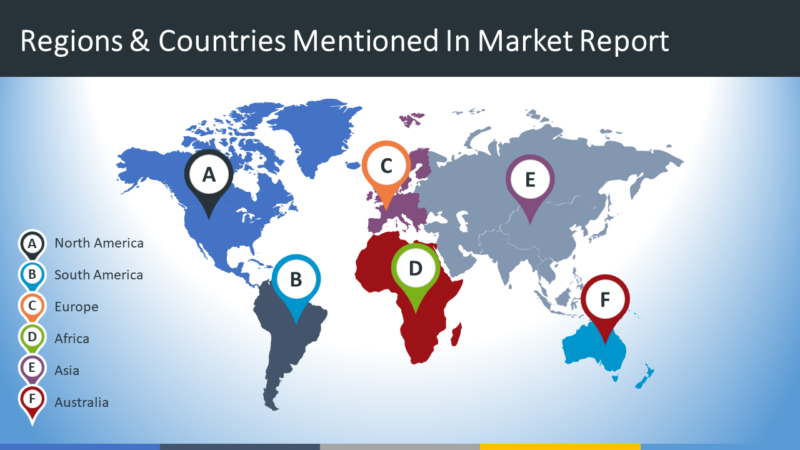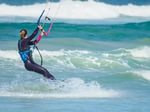Published Wed 31 Jul 2019

Since my first report to an AGM five years ago, a great deal has been done in South African Sailing (SA Sailing). Occasionally driving up a steep hill it is informative to look back in the rear view mirror and see where one has come from. On reflection, the valley where we started is a long way below yet the top of the hill remains elusive. There have been frustrating diversions and delays, some self-inflicted by at times the federation itself and at other times by the members.
The annual report to the AGM is importantly about celebrating the achievements of the year but should also be about learning the lessons on why we did not do better so as to promote greater success next time round.
There have been significant achievements over the five years. The five-point strategy adopted at that time continues to be a guide to prioritizing SA Sailing’s limited resources and providing the references for confronting the challenges.
Importantly, the amended Constitution has been voted in unanimously so providing the governance platform for the principles adopted in the Strategy. Key features are a joined up SA Sailing operating as one seamless enterprise. The National Council comprises the President, Vice-President, Regional Chairman, Treasurer, Transformation Councillor and Discipline Heads. The construct is to allow the organization to speak with one voice for the benefit of the sport.
With this co-ordination, it has been possible to execute much bigger projects than previously tackled. The sum of the parts, in appropriate circumstances, is much more powerful than individual components. The new SA Sailing website and Sports Management Platform, the Team Sailing League, the free to members Third Party Personal Liability Insurance and discounted Boat Insurance policies have all been possible because of co-ordination and joint authority at a national level.
The market clout of nearly 7000 members negotiating collectively is more telling than if one member or a single club or a Region on its own attempted to do something independently. This is the case whether dealing with a commercial enterprise or a public sector authority.
The new SA sailing website and Sports Management Platform is potentially a game changer for sailing in the country. It provides the opportunity to free up our existing staff, and those managing clubs and classes, from repetitive administration work to tackle and concentrate their intellect and skills to executing projects and programmes that grow sailing, both competitively and recreationally. The man years of work that get repeated year in and year out on membership verification, annual subscriptions, class registrations, member communications is frustrating and demotivating. Electronically the membership is now enabled to individually interact with the system in their own time beyond normal office hours so empowering the members. For an annual running cost less than existing processes, SA Sailing has acquired a system used by 152 global sporting federations, including the Australian Sailing Federation, and 8000 sports clubs. As this report is being drafted phase one of the system implementation is going live after months of hard work by Peter Hall, Lucy de Freitas, Shellee Nel and Wendy Adams. The sub-sections of the Sports Management Platform providing full operational functionality to
these groups to efficiently and effectively manage and develop their membership at a nominal cost. As in Australia, this is expected to be a value adding service to the SA Sailing membership only made possible through joined up collective effort.
For a short account of the Sports Management Platform please see Vice President Peter Hall’s explanation on You Tube link https://youtu.be/kCa-1dBOfgQ.
The absolutely free to all SA Sailing members Third Party Personal Liability Insurance is something made possible by collaborative effort with our partners Intasure. For the first time to our knowledge sailors now have cover for sailing overseas off a domestic base. The cover is for up to R25 million and can be extended to higher levels for minimum cost. The cost of Third Party Personal Insurance on an individual basis more than covers the annual SA Sailing subscription on the quotes we have seen. This comes on top of the previously announced discounted to SA Sailing members only boat insurance offering. Significant savings in premiums have been achieved for many members and with the deduction for a loss capped at R5000 the benefits schedule is significant.
But this is not to say that the National body can, or indeed should, do everything. Only those matters that have to be dealt with collectively ought to be dealt with nationally. There is a much longer list of activities that are better dealt with by handfuls of individuals acting independently. The development and growth of classes, the running of yacht club’s racing programmes, operation of Accredited Training Centres, youth development and Transformation and the organization of regattas are vitally dependent on handfuls of individuals banding together and making it happen.
The trick is to recognise and respect where these different approaches best apply. To do this sensibly there needs to be clear and continuing communications. By flattening the organizational structure and getting the sailors to be more directly represented at the Top Table this communication is enhanced and more sensible decision making facilitated.
An area where individuals undertake stalwart work independently within SA Sailing is in the National Standing Committees. The Inland and Offshore Committee, Youth Performance and Training have been run very successfully for a number of years under the capable chairmanships and leadership of Gavin van der Meulen, Bruce Keytel and Lucy de Freitas respectively. Inland and Offshore provides a cost effective service for members with boats in excess of 27 feet liaising with the South African Maritime Safety Authority (SAMSA) to ensure practical ways of complying with regulations drafted with ocean going merchant vessels in mind. The Youth Performance Committee has set clear qualification criteria early in the selection year so that aspirant competitors would know what is required. Additional funding for this programme is an important priority dependant on broader fund raising success. Training has focused on the Race Coach Program developed to support athlete performance at all levels and this has now been released and will be rolled out this year focusing on the lower level developments as a key focus. South Africa is very proud to have been the first country to have been accredited by World Sailing when it’s National Training Scheme was implemented globally in the mid-2000s. And, in the first round of re-accreditation at the end of 2018, was one of the first six MNAs to be reaccredited.
Key areas where there has been stepped up contribution is with Sailing Management and the Appeals Committee under the energised leadership of John Samuels and Dave Hudson respectively. Standardised templating of Notices of Races and Sailing Instructions modelled on World sailing guidelines, the retraining and testing of all National Judges, as well as timeous handling of Rule 69 and Appeals on Protest Committee decisions, have become operational norms. The bar has been raised and is now of a global standard. Indeed, we are trialling in the interests of World Sailing policy making, remote Protest Committees with International Judges officiating via teleconference facilities. There is also now a formal structure and training methodology for upskilling sailing management key roles.
A third critical area has been the need to bolster the Finance and Administration function. Grant Ekermans has stepped up to the mark at a National level. Joined by the Regional Treasurers the Finance Committee is pulling finances together into one cohesive whole.
A SA Sailing newsletter is now a monthly staple with positive feedback from the readership and a high hit rate for those who have subscribed to receive it. The new Sports Management Platform will further support effective communication on event details, and other key tools all integrating into the website.
On the self -inflicted injuries there has been a lack of progress on the SA Sailing Team, the appointment of a professional fund raiser (dependant on collecting the missing club membership fees), the loss of tenure of Algoa Bay Yacht Club and Mossel Bay Yacht Club and internecine squabbles between members and the national federation and between members themselves.
The first two matters are inextricably linked. Without a professional fundraiser there will not be a SA Sailing Team and without the missing club membership fees there will not be a professional fundraiser. A new initiative for collecting annual subscriptions is in the offing. It is essential to join hands and bridge the gap.
The loss of tenure of two coastal clubs is most regrettable. Last year we reported an initiative to survey and then present to the relevant authorities the economic and social transformation impact of the Coastal Yacht Clubs collectively. An enormous frustration is that only six of 12 coastal clubs completed the Coastal Clubs questionnaire fully and only 50 per cent of the club membership responded to the members’ survey. This despite each Commodore having been spoken to personally and committing to support the process. So sadly the nationally coordinated lobbying of the relevant authorities was still born. And members ask what has SA Sailing has done for the clubs in difficulty? As the old adage goes, “You can take a horse to water but you can’t make him drink”.
Happily, in Mossel Bay and Port Elizabeth two new Clubs have been established. The Mossel Bay Boat Club has, with help from SA Sailing through the Western Cape Government, found alternative premises. A new club, Sailing PE, starts life with an entry in this year’s Lipton Cup. Excitingly three other new clubs have been constituted bringing the total for the year to five, a net gain of three. We also welcome the Sharks Board Yacht Club, home to Sail Africa in Kwazulu Natal, the University of Pretoria Sailing Club and Durban University of Technology as new members of the sailing fraternity and wish them happy and successful years of sailing.
There have been two disputes that the membership has had with the National Federation one of which led to the Federation being sued in the High Court. There have also been certain personal differences between members who have sought to resolve their civil differences by trying to invoke the Racing Rules of Sailing and even the SA Sailing Constitution.
The first dispute was resolved by tabling the member’s concerns with SAMSA for their decision on the matters raised and confirmation of SA Sailing practices and exercise of delegated authorities. For noting is that SA Sailing’s Inland &Offshore activities conducted on a delegated basis on behalf of SAMSA were recently audited by SAMSA. The audit found SA Sailing to be fully compliant with its obligations with only one minor non-conformance. The High Court case was withdrawn by the aggrieved members once SA Sailing’s answering affidavits were tabled.
In the case of individual members who have differences between themselves, Council has indicated it will take definitive action against sailors who behaved unacceptably when a case was factually sound and related to a sailing matter. Any individual who has been through a Rule 69 protest, been found guilty of unsportsmanlike behaviour and been disciplined is a possible candidate for further censure. However, disputes of a civil nature between individuals who happened to be members of SA Sailing, or untested hearsay as between members of the Federation, are beyond the purview of the national body. Members need to be mindful of the costs involved in contested legal processes.
It may be becoming a South African national sport to pursue grievances through the Courts but before we become a litigious sporting discipline those who wish to sue others need to think of the opportunity cost.
And one is not just talking about money which is a considerable issue. More importantly, with limited discretionary time a largely voluntary organization is hugely dependant on relatively few individuals to willingly give of their time to make it possible for many thousands of others to enjoy their pastime. This is equally a challenge to those who indulge in gratuitous social media criticism. Who will be left standing to run the sport for the appreciative thousands when the handful of vexatious naysayers have wreaked their havoc on social media or even in legal actions, threatened or implemented?
INTERNATIONAL SUCCESSES
Although by no means an exhaustive list at the pinnacle of the sport some to be mentioned include the Junior Protea Colours awardees who represented our country at the Youth Olympics in Argentina were Rut Gouws (Kiteboarding) with Tyrone Rawlins as Coach and at the Youth Worlds Cullen Keytel and Isabella Wright (Laser Radial Boys and Girls) and Liam Gunning and Stephanie Goodyer (Nacra 15) with Olympian Stefano Marcia as Manager/Coach.
Ian Walker proudly representing South Africa place a magnificent 5th Overall in the 255 boat fleet at the 2019 Optimist Worlds in Antigua. This is an extraordinary achievement.
Matt Ashwell won the African Optimist 2018 Championship with a runaway result in Mozambique.
At World Sailing’s Nations Cup contest for match racing the following South African crews represented the African Continent:
Open entry: David Rae (skipper), Sibu Sizatu, Joweal Klaase and Sean van Rensburg.
Women’s entry: Dominique Provoyeur (skipper), Heidi Burger, Kim Rew and Sonja Stock.
The 2018 Far East World Championship sailed in China was won by Malcom Hall and Roger Hudson (co-skippers), Asenathi Jim, Alex Burger, Alex Ham and Calvin Gibbs. This is a stellar achievement in the Class that has been chosen for World Sailing ‘s inaugural World Keelboat Championship.
On the TP52 circuit Hasso and Tina Plattner have entered their second year proudly campaigning two entries under a South African flag.
We wish them great success.
CONCLUSION
Sincere appreciation is expressed to all those who contributed to South African sailing in 2018/19. Thanks are expressed to members of Council and SAS Regional and District structures for hard work and commitment. A special thanks is due to the full- time staff of the SAS Secretariat. They are the frontline of the organisation and with their energy and enthusiasm represent a positive interface with the community at large.
The real heroes are the sailors, racing and recreational, those who make all the clubs function, the judges and race management officials who on a purely voluntary basis make it happen on the water and all the pioneers already engaged in Transformation of the sport. A heartfelt thank you is expressed for your inspirational contributions.
Let’s all remember sailing is our sport. SA Sailing is our organisation. We make of it what we put into it. And all contributions are most welcome.
Philip Baum
President – South African Sailing
TAGS
Past Newsletters Newsletters National General News Regional News Offical News





Recent Comments